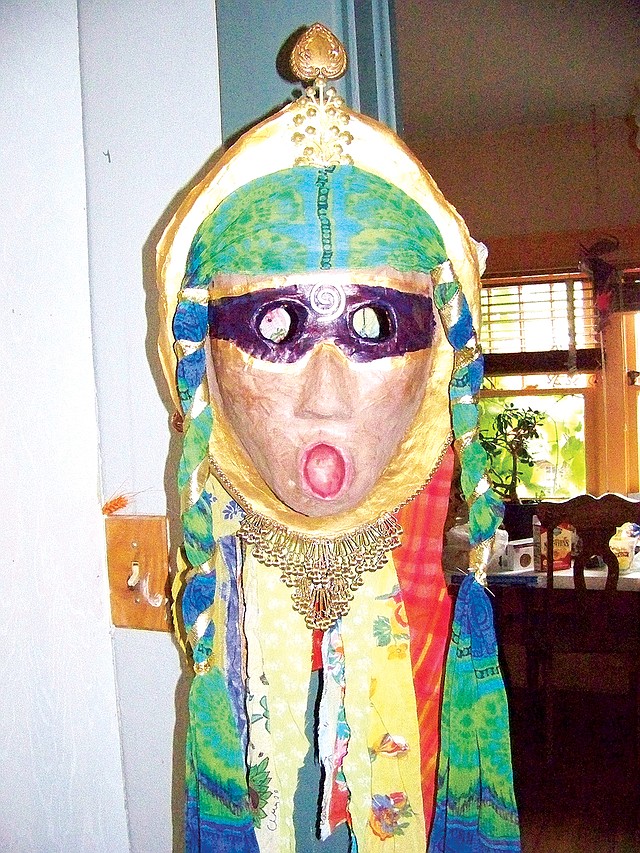Behind The Mask
Art Experience workshop encourages expression
Friday, July 25, 2014
Jo Ann Kaminsky describes Masks for Change as "an art therapy group, but it's focused on personal growth."
Masks for Change is a two-day workshop Saturday and Sunday at the Art Experience in Fayetteville. The Art Experience is a nonprofit center for healing and growth through the expressive arts and play, according to its website, theartexperienceinc.org. In the workshop, adults will create masks from clay, then add papier mache, paint it and make a hood, Kaminsky says. The participants will then perform with the masks at the end of the workshop. The workshop can take up to eight participants, and there were still spots open, as of presstime. Part of the funds raised from the workshop will go back to the Art Experience for future funding, she adds.
FAQ
Masks For Change Workshop
WHEN — 9 a.m. to 4 p.m. Saturday and Sunday
WHERE — The Art Experience Inc., 641 W. Martin Luther King Blvd. in Fayetteville
COST — $150
INFO — Register by calling 442-0557 or emailing theartexperienceinc…
Kaminsky, who is an art therapist and play therapist, says she "really likes to help people find their own way."
"Everyone's mask is different," she says. "There's not a lot of technique; there's a lot of expression."
Participants are able to choose everything when creating the mask. Kaminsky says this is one of the wonderful aspects of doing art -- and art therapy, in particular. There will be various paint colors available, along with ribbons, sequins, shells, buttons and feathers. The masks can go in a lot of different directions, and she notes that a mask doesn't have to be pretty.
She adds that making the mask is not a high-tech project, and no prior art experience is needed.
"As adults, we don't really allow ourselves to sort of get that playful that often," she says.
The inspiration for this workshop came to Kaminsky about 10 years ago when she was listening to a lecture about a group on the Ivory Coast who believed in the magic of the mask. They believed the mask bridged "our world and the unknown," she says. If the community had a problem, they would go to the person who wore the mask for help. She thought that this was something people could do for themselves, seeing "the mask as a bridge to our own unknown." She has been holding these workshops for a few years now.
On the first day, participants will make their clay shape in the morning, and by noon, they will likely have the papier mache covering done, which gives the masks time to dry during a lunch break. She suggests for people to bring their own lunch or go out for lunch because the workshop does not provide food. Participants can often paint their masks by the end of the day, and the next day, they will build the hood. Throughout the workshop, they will be occasionally journaling and drawing. Participants dialogue with their pieces and "see what it has to tell you."
After the masks are done, everyone will put them on, and each person will individually lead a short performance, possibly sharing a poem or by walking or dancing the way each feels his mask would. Everyone else validates them by playing along and following the rhythm, she adds.
NAN What's Up on 07/25/2014